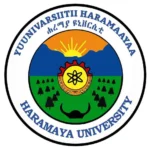Network Members
2024 Awardees





Location: Brazil
Recent studies have highlighted the prevalence of gender-based violence within Brazilian universities, particularly within the framework of sexual harassment. Despite this, Brazil has a significant research gap, with limited efforts to systematically map the phenomenon, understand its causes and implications, and develop transformative policies. This research project addresses this void by conducting a university-wide mixed-methods study in two prominent Brazilian public universities, namely the Federal University of Minas Gerais and the Federal University of Goiás. The objectives of this research are twofold: (a) to measure the prevalence of physical violence, psychological violence, economic violence, sexual violence, and sexual harassment, and (b) to comprehend the experiences of gender-based violence, sexual harassment, and their impact on mental health, with a focus on unacknowledged aspects affecting individuals from racial/ethnic minorities. The study will involve four participant groups – undergraduate and graduate students, professors, and administrative personnel. By comparing these two universities, situated in different regions with distinct profiles the research aims to identify key forms of gender-based violence, discern likely perpetrators and victims, examine the impact on academic performance, mental health, and general well-being, and assess existing institutional response mechanisms. The research will facilitate the mapping of institutional policy instruments. These instruments are intended to be discussed and potentially adopted by the two academic institutions and will be crucial in fostering long-term transformative change.
Mariana Prandini Assis
Personal Investigator
Cristiano Rodrigues
Co-investigator
Location: Karachi, Pakistan
Despite the existence of evidence-based interventions (EBIs) to mitigate campus sexual harassment globally, none have been tailored or implemented within the context of Pakistani universities. This research aims to conduct a formative study in collaboration with students, faculty, and staff at diverse university campuses in Pakistan to select and adapt a contextually appropriate intervention for the reduction of campus SH.
Phase 1 of the study involves qualitative research, including interviews with faculty, and staff as well as focus groups with students. This phase seeks to explore and define the experiences of sexual harassment (SH) at Pakistani universities and identify multilevel factors influencing its prevalence. The socio-ecological framework will be employed to map these factors, including awareness, trust in institutional response, social norms, and leadership investment. In Phase 2, results from Phase 1 will be shared with university advisory boards (UABs), comprised of participants from Phase 1, to identify up to eight EBIs from a campus-based SH prevention interventions inventory. Each EBI will be systematically evaluated on dimensions of acceptability, feasibility, strength of evidence, and cost, before ultimately selecting one to be adapted and manualized. This study aims to facilitate the implementation of interventions targeting SH, offering suggested adaptations to improve feasibility and acceptability within the Pakistani context.
Team
Dr. Seema Laasi
Principal Investigator
Zarmeen Shakil
Irina Bergenfeld
Meroona Gopang
Nirmal Niazi
Location: Dehradun, Uttarakhand, India
The project aims to (1) identify manifestations and underlying causes of campus Interpersonal violence (IpV), (2) formulate a student-friendly online module addressing various forms of IpV, (3) assess the feasibility and acceptability of the intervention, and (4) propose institutional policy recommendations for addressing IpV. A multi-step approach will be employed, beginning with online surveys to understand prevalent forms of IpV. Collaboration with a student advisory committee and key stakeholders will inform the development of an interactive online module. Student-led initiatives, including workshops, awareness programs, and town hall discussions, will complement the mandatory online modules. Interventions will be piloted and evaluated using surveys, focus group discussions, and Likert scale assessments. This work will inform policy recommendations and findings will be disseminated nationally and internationally. Reneaux’s team hopes to transform how issues IpV are approached and resolved nationally by proactively introducing comprehensive policies and awareness initiatives.
Team
Dr. Melissa Reneaux
Principal Investigator
Dr. Jayasree Anitha Menon
Yamini Negi
Dr. Veena Krishnan
Location:
Special Region of Yogyakarta 55281, Indonesia
The project addresses sexual violence as a manifestation of power abuse, advocating for a comprehensive approach to tackle issues like the gender pay gap, lack of women in leadership roles, and patriarchal curricula. It proposes participatory gender audits, engaging students and staff to uncover and dismantle these hierarchies. While most Indonesian universities have task forces for sexual violence, they often focus on response rather than addressing underlying gender inequalities, leading to underreporting. The project seeks to complement these efforts by encouraging a comprehensive approach to sexual violence prevention without overburdening existing task forces, involving staff and students across various university units. Employing a participatory gender audit methodology rooted in feminist principles, the project engages participants from four universities in Indonesia to develop indicators and tools, prioritizing safety and rights in data collection
Team
Dr. Diah Kusumaningrum
Personal Investigator
Nabilah Nur Abiyanti, M.Phil
Co-investigator
Prof. Poppy Sulistyaning Winanti
Research coordinator
Prof. Yayi Suryo Prabandari
Research Coordinator
Dr. Hempri Suyatna
Research Coordinator
Wijayanti, M.Sc
Research Coordinator
2023 Awardees



Location: Ghana
The research proposal for the Camp Life program evaluation aims to assess the impact of The University of Cape Coasts’ (UCC) Camp Life intervention. The Camp Life intervention focused on student knowledge and attitudes related to sexual and gender-based violence (SGBV) prevention, policies, and response. This study will use a mixed methods approach, including a Campus Climate Survey to measure changes in knowledge and attitudes, focus group discussions with students, and individual interviews with peer facilitators and faculty/staff involved in the intervention. The research also aims to document and share the process of deploying Camp Life to incoming first year students. The evaluation is expected to inform and improve the current practices of the Camp Life intervention, as well as contribute to the literature on campus SGBV in Ghana and provide insights for other institutions implementing similar programs.
Team
AMANDA ODOI
Principal Investigator
University of Cape Coast (UCC)
Abdul-Aziz Seidu
Michelle Munro-Kramer
Sarah D. Compton
Eugene KM Darteh
Location: Ethiopia
The research team at Haramaya University in Ethiopia aims to reduce gender-based violence (GBV) against female students by adapting UNICEF’s Role Model Academy (RMA) approach. The project will involve creating peer-to-peer engagements, establishing service and referral mechanisms for GBV survivors, and generating evidence-based data for dissemination. The specific objectives include determining the prevalence of GBV, utilizing community conversation approaches to change current norms and practices, and implementing the RMA for effectively responding to and preventing GBV. The project will target female students, staff, and university administrators, and will involve 12 RMA sessions covering specific topics over 6 to 9 months, with 75-100 trainees over two years. The RMA approach provides a safe place for open dialogue and action concerning sensitive issues and promotes community conversations for critical reflection and discussions.
Team
ABERA KENAY TURA, PhD
Principal Investigator
Haramaya University
Agumasie Semahegn, PhD,
Tigist Gashaw, MSc
Tara Wilfong, MD, MPH
Tahir Ahmed, PhD
Peer2Prevent aims to design a violence prevention strategy on campus based on research and collaborative work with students.
The project will involve the formation of student ambassadors through Federated Centers, the Student Affairs Department, and various student organizations. These ambassadors will guide students to propose and build preventive actions based on their perspective. The main objective of this project is to address violence primarily between peers and ensure that the interventions are built from the perspective of those who experience and/or perpetrate violence.
Team
Patricia Mariella Ruiz Bravo Lopez, M.D
Principal Investigator
Rafaella De La Puente, M.D.
Tesania Eva Velazquez Castro, M.D.
Jimena Sanchez Barrenechea, M.D.
The Ecuador-based research aims to study dating violence among young university students in Ecuador. The study will focus on identifying the main correlates for perpetration and victimization of dating violence, analyzing discrepancies and biases, and modeling actor-partner and actor-couple interdependence. The goal is to understand the dynamics of violent relationships and the personal, family, and social characteristics that contribute to dating violence, with the ultimate aim of informing prevention and intervention efforts. The study will use an integrative conceptual and methodological approach, including the Actor-Partner Interdependence Model, to analyze the interdependence of behaviors within couples.
Team
Venus Medina-Maldonado, MS in Nursing and Community Health & PhD in Health Science
Principal Investigator
Dr. Francisco Javie
Liliana Jayo
Cesar Yumiseva
Esperanza Palencia
Hugo Sinchi
Diana Vuele
Denny Ayora
Soledad Carrión
Francisco Rodrígues Díaz
2019 - 2020 Awardees



In Kyrgyzstan, despite pervasive concerns with growing incidence and prevalence of sexual violence on university campuses, public response to sexual harassment in media outlets has been one of outward sexism, verbal aggression and victim-blaming. All this has happened against the backdrop of a 22% rate of sexual violence against university students. This project aims to generate contextualized, inclusive and evidence-based understanding of sexual and gender-based violence (SGBV) on university campuses in Kyrgyzstan, to inform sustainable policy action and activism. This would be the first comprehensive study to systematically assess campus sexual violence in various forms of victimization to explore campus readiness to address sexual violence, and to evaluate institutional framework in a specific university campus, namely the American University of Central Asia (AUCA). The study will utilize a critical approach to campus SGBV by interrogating existing systems of domination and power that uphold sexual assault – an innovative conceptual and methodological commitment, unique for Kyrgyzstan. Through quantitative and qualitative methodologies, the project will ultimately contribute to development and institutionalization of an efficient, comprehensive, inclusive, and evidence-based prevention and response system, cultivate broad-based collaboration, and build AUCA’s capacity to deal with SGBV. On the basis of our findings, we hope to develop, promote and introduce policy modifications, anti-SGBV programs, develop resources to prevent SGBV (training modules, modules for first-years for orientation week, modules for faculty, bystander training, etc), develop plans for systematic awareness raising and formulate recommendations for the project’s scaling out.
Team
Dr. Elena Kim
Associate Professor of Social Sciences at the American University of Central Asia
Dr. Elena Molchanova
Professor of Psychology at the American University of Central Asia (AUCA
Dr. Elena Kosterina
Associate Professor of Psychology at American University of Central Asia
Kurmanzhan Asylbekova
Administrative Assistant for the Psychology Department at the American University of Central Asia
Since 2016 in Colombia, universities have started to build gender equality policies and protocols to address and eradicate gender-based violence (GBV). However, the institutional inefficiency, the procedural speed of reporting and punishment, and the lack of budgetary allocation make it so that universities in Colombia continue to be unsafe and insecure places for women and sexual/ gender non-conformists. The aim of this project is to investigate the processes of Prevention, Care, Reporting, and Punishment (Spanish acronym: PADS) against different forms of GBV in four universities (two public and two private) located in Bogota,Colombia. These universities have protocols for the care and prevention of GBV.
Through connective ethnography, participant observation, interviews, focus groups, social mapping, and memory workshops, we are looking to: (1) Identify the most frequent forms of sexual violence and other forms of GBV in each of the universities, (2) Analyze the process for the design and implementation of the existing protocols in each of the universities, and (3) Build the memory of groups, institutions, observatories, and teachers that have worked with Prevention, Care, Reporting, and Punishment (Spanish acronym: PADS) and GBV at the four universities.
Team
Diana Ojeda
Principal Investigator
Aylin Torregroza-Villareal
Principal Investigator
Natalí Arango-Uribe
Researcher
Nani Barrantes
Researcher
Eliana Carolina Carrillo-Rodríguez
Researcher
Laura Castrillón-Guerrero
Researcher
Nicole Chavarro-Molina
Researcher
Ingrid Espitia
Researcher
Isaac Melamed
Researcher
Tatiana Pino
Researcher
This project aims to: 1) Analyze the development process of the creation and implementation of protocols and other possible public policies aimed to prevent, address and eradicate violence against women at the Universidad Autónoma Benito Juárez de Oaxaca (UBAJO). By analyzing this, the project will evaluate the level of institutional commitment to preventing sexual violence, the problems and limitations that are being faced, as well as the impact these policies have had fundamentally in female students; 2) Review the “grassroots” responses from women students facing discrimination to identify their level of intervention, train them, and to reinforce, or incentivize the creation of prevention and care proposals.
Since these types of policies are very new and scarce at UBAJO, and student participation is very low, it is necessary and urgent to push for actions along both lines. One side includes evaluating and making a proposal to improve the protocol for addressing cases of violence and having real strategies for eradicating gender-based violence in the university environment. The other focuses on preparing and engaging a group of students to create and implement strategic proposals for reporting and preventing gender-based violence within the university community.
Team
Dr. Fabiola Bailón Vásquez
Principal Investigator and Project Lead
Dr. Charlynne Curiel
Co-researcher
Dr. Holly Worthen
Co-researcher
Noemí Domínguez Gaspar
Coral Mendoza
2018 - 2019 Awardees




The men with conscience (MWC) intervention uses a participatory approach using role-play, group discussions and critical reflection to encourage men to engage in gender equitable relationships with women by addressing personal values and belief systems, societal prescriptions of men’s behavior, and by defining rape, bystander interventions and healthy relationships. The study is conducted at two universities in Cape Town, South Africa: Western Cape University and Stellenbosch University. The study aims are to: (1) Estimate the prevalence and risk factors of sexual violence among students and (2) Assess the acceptability and feasibility of the MWC sexual violence prevention intervention through a pilot randomized controlled trial on these two campuses.
Team
TANIA DE VILLIERS
Principal Investigator
University of Cape Town
NAEEMAH ABRAHAMS
Co-Investigator
A Medical Research Council Gender and Health Research Unit
SIKHANGELE MABULA
Interventionist
Sonke Gender Justice, South Africa
CELESE WILLIAMS
University of Cape Town
Team
WILLACE ABUYA
Principal Investigator
Moi University, Kenya
ALBERT OBBUYI
Co-Investigator
Centre for the Study of Adolescence, Nairobi
PAULA TAVROW
University of California Los Angeles
This study aims to increase awareness about sexual harassment in the work and learning environments, and streamline procedures for reporting sexual harassment within the university setting. This project involves sexual harassment awareness campaigns, target ing students and staff at University of Zambia, and an evaluation of current sexual harassment policy implementation and sexual harassment reporting structure to identify gaps and barriers.
Findings will be used to recommend revisions to the campus’ sexual harassment policy and to create an online user-friendly resource for dealing with harassment.
Team
J ANITHA MENON
Principal Investigator
University of Zambia HIV and AIDS Response Unit (UNZA)
CHARLES MICHELO
Co-Investigator
UNZA
MARY SHILALUKEY NGOMA
Co-Investigator
UNZA
CLEMENTINA LWATALA
UNZA
GAINZANI MWALE
Co-Investigator
UNZA
This project will assess the acceptability, feasibility and fidelity of the Enhanced Assess, Acknowledge, Act (EAAA) sexual assault education and resistance program at the University of the Witwatersrand in Johannesburg, South Africa.
Study investigators will conduct qualitative research with student and support staff on South African Technical and Vocational Education Training (TVET) college campuses to assess their experiences with the EAAA intervention and to develop links with colleagues under taking similar work in the region to share tools, methods, approaches, and learning. Key products of this study will include refinement of the EAAA training manual, policy brief on acceptability of EAAA for college students in South Africa, and building of regional knowledge on campus-based gender -based violence prevention efforts through linkages between similar projects in the region and globally.
Team
MERCILENE MACHISA
Principal Investigator
SAMRC and WITS
PINKY MAHLANGU
Co-Investigator
SAMRC / WITS University
YANDISA SIKWEVIYA
Co-Investigator
SAMRC / WITS University
ELIZABETH DARTNALL
SAMRC
MANAGA PILLAY
Co-Investigator
Higher Education & Training, Wellness & Development Centre
RACHEL JEWKES
Co-Investigator
SAMRC / WITS University
Other Member Campuses



Student Advisory Board
The Global College Campus Violence Prevention (GCVP) Network seeks to prevent sexual assault, intimate partner and dating violence, sexual harassment, stalking, and other forms of sexual and gender-based misconduct on college and university campuses, worldwide. Nine partners from seven countries (plus the United States) are currently involved in the Network. We established a GCVP Student Advisory Board (SAB) to bring students from across the globe who are interested in collaborating to understand, prevent, and improve campus and community-based responses to these forms of abuse and misconduct.
Global Members









UC Members






